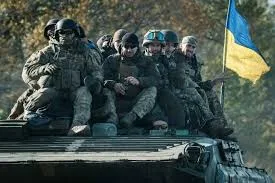Kiev, UKRAINE – September 4, 2025
From the Ukrainian capital of Kyiv, a sense of grim resilience prevails. While the city endures, a recent barrage of Russian attacks has underscored a stark reality:
the continued Russian aggression highlights the urgent need for security guarantees to ensure Ukraine’s long-term survival. As President Volodymyr Zelenskyy embarks on a diplomatic tour of Europe, his message to Western partners is both a plea for immediate aid and a demand for concrete, legally binding security assurances to prevent future conflicts.

The urgent need for a new security framework was brought into sharp focus by a recent Russian assault on Kyiv. Last week, the city suffered its second-biggest aerial attack since the full-scale invasion began, resulting in the tragic deaths of 23 people, including four children. More than 600 drones and ballistic missiles targeted residential buildings and vital infrastructure, a chilling reminder that peace is still a distant prospect. One apartment building in the southeastern part of the city was completely destroyed. The psychological toll of these sustained attacks is immense, as a recent UN report confirms that millions of Ukrainians are suffering from mental health issues and a pervasive sense of emotional exhaustion.
In response to this unceasing violence, President Zelenskyy has been on a diplomatic shuttle across Europe, pushing for a robust, international security framework. Speaking in Copenhagen, he stressed that while Ukraine has received “more than 30 security documents,” the country needs more than just paper promises. “First of all, they must be legally binding,” he said, drawing a direct line to the 1994 Budapest Memorandum, which offered security assurances to Ukraine in exchange for giving up its nuclear arsenal. That memorandum proved insufficient to deter Russia, a lesson the Ukrainian leadership is not willing to forget.
Zelenskyy’s proposal, known as the Kyiv Security Compact, calls for a group of core guarantor states—including the United States, the United Kingdom, Germany, and France—to commit to legally binding, multi-decade agreements. These agreements would include providing large-scale weapons transfers, intelligence support, and intensive training for the Ukrainian army. The goal is to build a capable Ukrainian military that is strong enough to deter any future Russian aggression, even after a potential peace deal is signed. The Compact is explicitly designed to not contradict Ukraine’s long-term goal of joining NATO but rather to serve as a temporary, comprehensive security shield until that day comes.
While many European nations, led by France and the UK, have shown a willingness to formalize security guarantees, a central challenge remains the commitment of the United States. European leaders, including French President Emmanuel Macron, have made it clear that any lasting security framework would require full U.S. participation as a “backstop.” Zelenskyy is set to connect with U.S. President Donald Trump in the coming days to discuss this, as the war has entered a new phase where a diplomatic solution is being considered alongside continued military support. The Ukrainian leader’s plea is simple: to secure a future where his country’s freedom is not constantly at the mercy of Russian aggression and where an end to hostilities truly means peace.
Headline Points
* Massive Aerial Attacks: Kyiv recently endured its second-biggest aerial assault since the war began, killing dozens and highlighting the city’s constant vulnerability.
* Call for Guarantees: President Volodymyr Zelenskyy is on a diplomatic mission seeking legally binding security guarantees to protect Ukraine from future Russian aggression.
* The Kyiv Security Compact: Ukraine’s proposed security framework calls for a group of core nations to provide sustained military, financial, and intelligence support.
* Lessons from the Past: Zelenskyy has warned that a new agreement must be legally binding to avoid a repeat of the 1994 Budapest Memorandum, which failed to protect Ukraine.
* Crucial U.S. Role: European leaders stress that any durable security framework for Ukraine requires the full commitment and participation of the United States.
